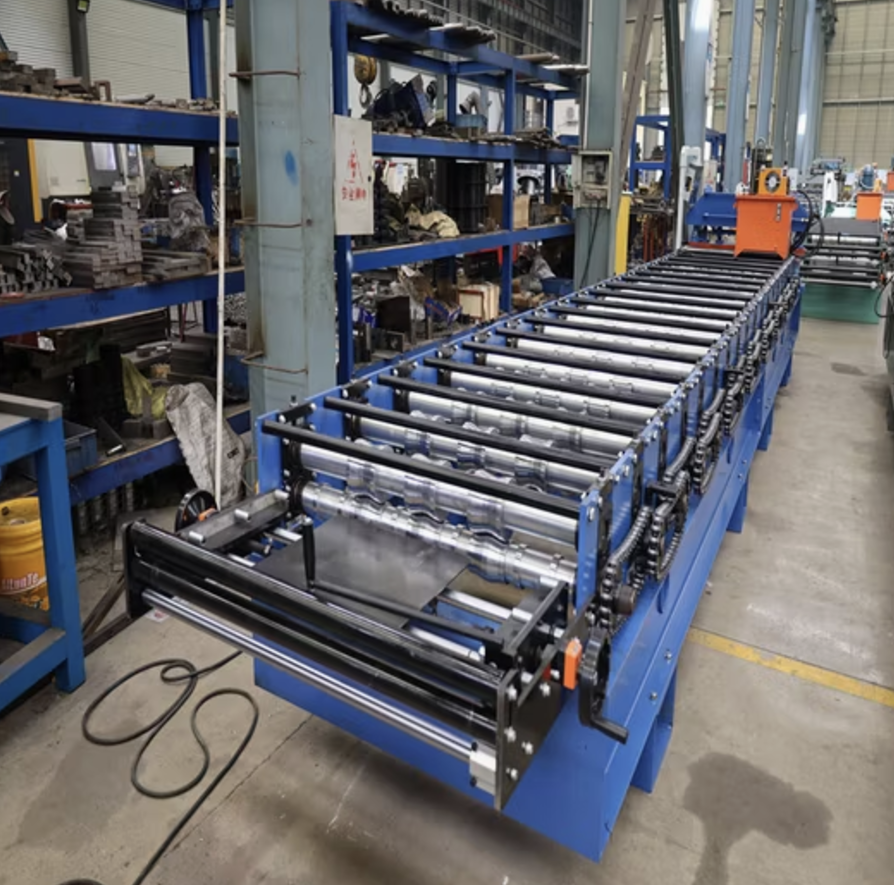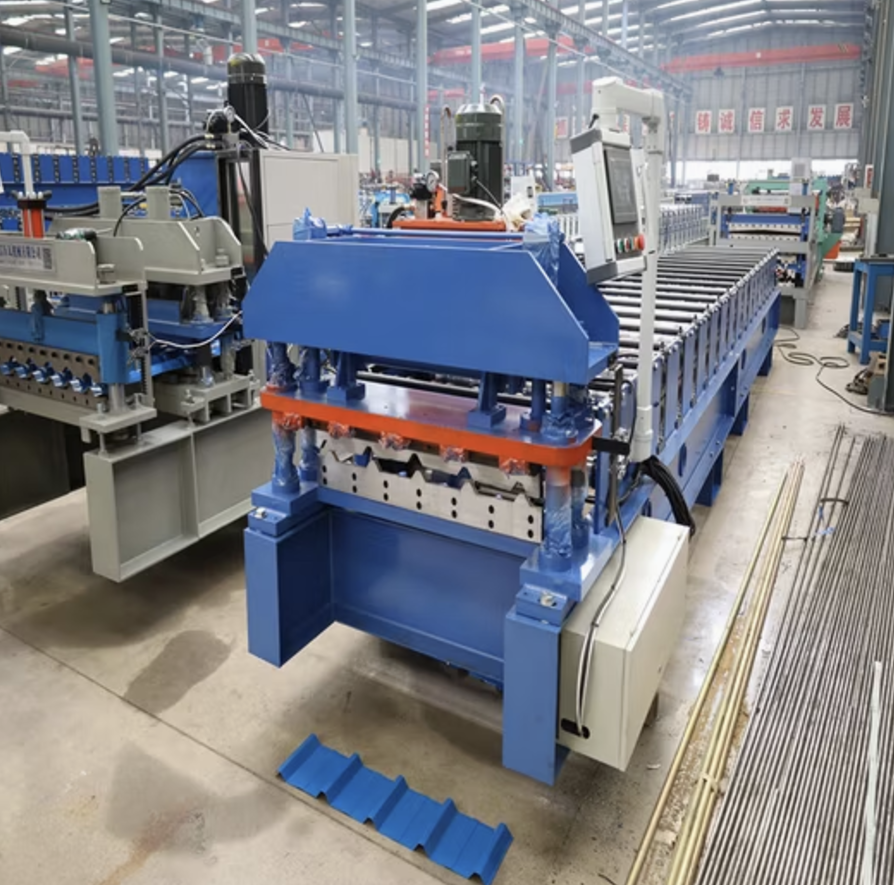To express an interest in this machine please submit the form below.

Not Sure What Machine You Need?
Select Your Profile, We'll Match It
Choose your desired profile drawing, and let Machine Matcher connect you with the best roll forming machine tailored to your needs.
Browse Profiles



Roofing roll forming machines are specialized industrial equipment designed to produce roofing panels efficiently and precisely. These machines take metal coils and transform them into pre-designed roofing profiles through a continuous bending process. Roofing panels made by roll forming machines are widely used in residential, commercial, and industrial buildings due to their durability, lightweight nature, and ease of installation.
Key Features:
| Specification | Details |
|---|---|
| Material Compatibility | Galvanized steel, aluminum, copper, and pre-painted steel. |
| Material Thickness | 0.3mm to 1.2mm |
| Profile Width | 300mm to 1200mm (customizable) |
| Roller Material | High-grade steel (GCr15 or equivalent), hardened and chromed for durability. |
| Machine Speed | 15m/min to 40m/min, depending on the profile and material. |
| Cutting System | Hydraulic or servo-controlled cutting system with precise blade design. |
| Power Requirements | 380V, 3-phase, 50Hz (customizable for the Netherlands grid standards). |
| Control System | PLC-based system with touchscreen interface for ease of operation. |
| Frame Structure | Welded steel frame for high stability and minimal vibration. |
| Safety Features | Emergency stop buttons, protective enclosures, and safety guards. |
| Optional Add-ons | Automatic stackers, remote PLC control, uncoilers, and coil handling systems. |
| Dimension | Typically 10m x 1.5m x 1.2m (varies based on configuration). |
| Weight | 8 to 12 tons, depending on customization. |
Roofing roll forming machines cater to the diverse needs of the Dutch market, including:
Q1: What types of roofing profiles can this machine produce?
A1: The machine can produce a variety of profiles such as standing seam panels, corrugated sheets, and trapezoidal roofing sheets. Profiles can be customized to meet specific market needs in the Netherlands.
Q2: How is the machine adapted to Dutch power supply standards?
A2: The machine is designed to operate on 380V, 3-phase, 50Hz power, which is standard in the Netherlands. Custom configurations are available if needed.
Q3: Can the machine work with eco-friendly materials?
A3: Yes, the machine can process eco-friendly roofing materials such as recyclable steel and aluminum, aligning with sustainable building practices in the Netherlands.
Q4: What is the lead time for installation?
A4: Depending on customization and shipping, the lead time for installation typically ranges from 4 to 8 weeks.
Q5: Is training provided for machine operation?
A5: Yes, comprehensive training and user manuals are provided. Remote or onsite training options are also available for Dutch operators.
Q6: How is maintenance handled?
A6: Maintenance involves regular lubrication of rollers, inspection of hydraulic systems, and cleaning of cutting blades. Spare parts and support services are available locally or through remote assistance.
Q7: Can the machine handle custom orders for specific roofing designs?
A7: Absolutely. The PLC system allows for easy programming to produce unique profiles tailored to customer requirements in the Netherlands.
Q8: Are there any tax benefits or subsidies for purchasing this machine in the Netherlands?
A8: Businesses in the Netherlands may benefit from tax deductions or subsidies under environmental or industrial innovation schemes. Consult with local authorities for specific programs.
Roofing roll forming machines are indispensable for producing high-quality roofing panels. With advanced features, adaptability to the Netherlands' market requirements, and robust construction, these machines are an excellent investment for manufacturers looking to enhance productivity and cater to diverse customer demands.
Copyright 2026 © Machine Matcher.